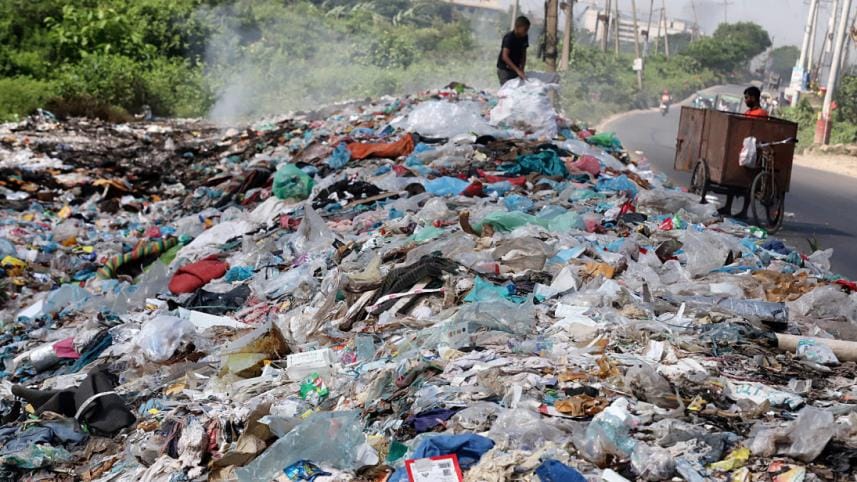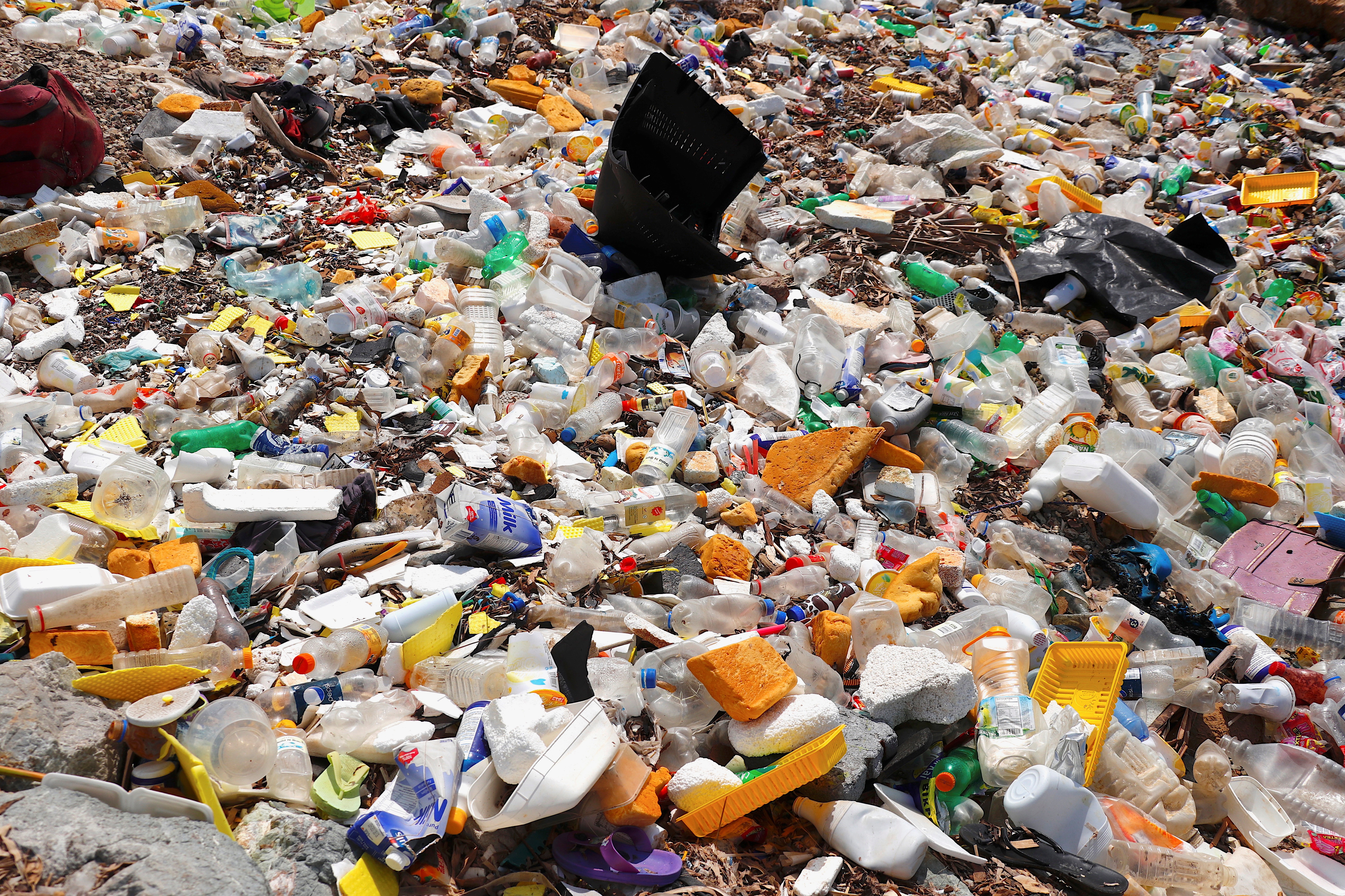Faith-led messaging can mitigate plastic pollution

Plastic pollution, particularly from single-use items such as plastic grocery bags and various food packaging, persists despite ongoing awareness campaigns and regulatory efforts. In Dhaka city alone, we generate around 646 tonnes of plastic waste daily, much of which remains unmanaged. In district and upazila towns, markets and municipalities, the problem is more severe.
We could not properly implement the single-use plastic ban, mostly due to the lack of alternatives in the market. The National Action Plan for Sustainable Plastic Management remains elusive, and public awareness is insufficient. Moreover, the lack of a regular and effective waste collection and management system continues to worsen the problem in many places.
In fact, Bangladesh is among the top 20 mismanaged plastic waste-generating nations. A review, published in the Lancet, warned that plastics are a "grave, growing and under-recognised danger" to both human and planetary health, causing at least $1.5 trillion global health-related damage, a year. Current global plastic productionis about 450 million tonnes annually and only nine percent of plastic waste is recycled; the rest mostly goes to landfills and oceans.
Last month, the United Nations plastic treaty talks in Geneva failed again as representatives from over 183 countries could not reach a consensus towards a legally binding agreement to tackle plastic pollution.
However, the solution to plastic pollution is nuanced because plastic, due to its versatility, durability, and low cost, has improved modern daily lives in numerous ways. Therefore, stopping plastic pollution cannot be the solution per se; rather, the focus should be on the management of plastic waste.
For example, single-use plastics, such as thin grocery bags, wrappers, and disposable containers, are often used for a short time. They have no post-consumer value and hence are difficult to integrate into circular plastic waste management systems. These items often end up in rivers and oceans, polluting the environment. On the other hand, plastic items with post-consumer value are mostly collected and recycled.
Therefore, the challenge is to bring about public behavioural change by making people aware of the pollution caused by single-use plastic items. This calls for consistent messaging, social influence, and a comprehensive, multi-stakeholder approach and, ultimately, the personal commitment of every citizen. Media continue to publish and broadcast reports addressing this issue; national and international NGOs are also actively conducting research and running awareness campaigns to increase plastic literacy and promote sustainable practices. Yet, a meaningful shift in people's behaviour seems like a distant goal.
In this context, the Environment, Forest and Climate Change Adviser Syeda Rizwana Hasan called upon religious scholars to leverage their influence in raising public awareness about noise and plastic pollution. Community-based solutions are often inherently sustainable and effective ways to bring about change. We have over 300,000 mosques in Bangladesh. Each one occupies a central place in community life. People gather in large numbers for weekly congregational or Jumma prayer. Within Islamic teachings, there are many Quranic references and prophetic teachings on cleanliness, khalīfah or stewardship of the Earth, and the responsibility to protect the environment. If our imams and faith leaders dedicate a few minutes during every weekly congregation sermon or other religious gatherings to speak about the public health and environmental concerns caused by plastic pollution, they can inspire behavioural change at the grassroots level.
To save the environment around us and for healthy living, we cannot overlook problems such as plastic and pollution. Neither can we wait for the world to reach a consensus to end plastic pollution. While inadequate waste management capacity across the country is one of the biggest challenges, with the responsibility lying mostly with government and non-government entities, the general public can also play a part here. Effective public awareness can largely mitigate this crisis. For example, people can be encouraged to reduce the use of thin plastic polythene bags by carrying reusable ones and being cautious about discarding plastic waste irresponsibly. Blaming others for plastic production and waste generation will never solve the current problem. Education, awareness, personal commitment and collective efforts will do.
Parvez Uddin Chowdhury is a development worker and climate enthusiast.
Views expressed in this article are the author's own.
Follow The Daily Star Opinion on Facebook for the latest opinions, commentaries, and analyses by experts and professionals. To contribute your article or letter to The Daily Star Opinion, see our guidelines for submission.




 For all latest news, follow The Daily Star's Google News channel.
For all latest news, follow The Daily Star's Google News channel. 

Comments